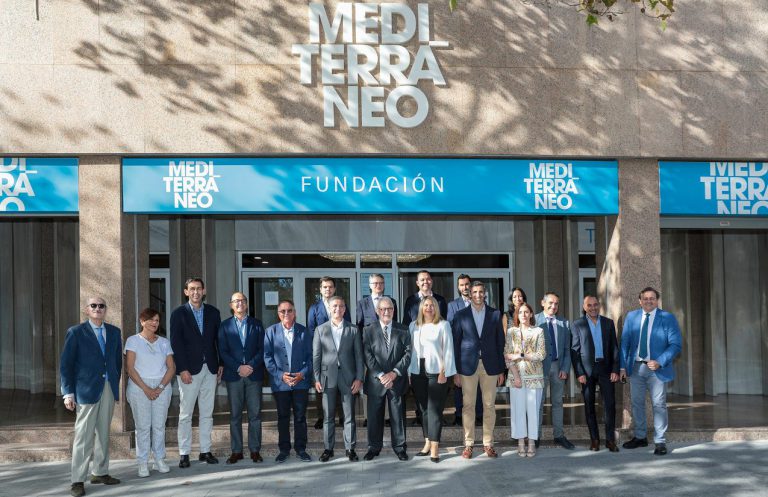The development of tolerance or the promotion of critical thinking are just some of the most notable properties of culture and art.
Immersed in a globalised and interconnected society, today's young people face a life experience that is richer in experiences and opportunities, but also more complex and overwhelming. Being young can be stimulating, but also alienating given the dizzying progress of technology, which becomes the centre of gravity around which their life experience orbits. An experience that algorithms condition, measure and monetise without rest or hesitation. In the face of this new paradigm, digital narratives are tailored to the pressing need of platforms to capture and retain the attention of young people. The contents thus submit to the tyranny of the superfluous, the frivolous, the unsubstantial and the trivial, even the fake, all of it extolled and legitimised by likes and a large cast of emoticons. In this context, it is more pressing than ever to uphold culture as an essential tool to empower young people and as an antidote against digital manipulation.
Etymologically, the Latin word "culture" refers to "caring for the land" or "agriculture", although over time it took on a metaphorical meaning to describe "the care or cultivation of the mind and spirit". Currently, however, many manifestations end up taking refuge under the umbrella of an excessively lax concept of culture, one that often leads to contradictory positions. For example, for some, football can be considered a cultural phenomenon in its own right, and a play by Messi could be likened to the highest category of art. For others, however, football is no more than a sport of the masses that, while it stirs passions, is far from raising the spirit to those sublime levels that only true art is able to achieve.
In this article, however, we will refer to culture as the intellectual practice and development of people through humanist disciplines; in other words, those focused on understanding human experience, history, thinking, its social dimension, language or creative expression.
Culture has clearly made several contributions to the growth and development of young people. First, culture contributes to promoting the critical spirit of young people at that stage of life when youth and inexperience make them more susceptible to certain influences. Culture introduces young people to different ways of thinking, challenging them to question their own beliefs, values and rules to shape their own judgements. As the philosopher Francis Bacon explains, "critical thinking is a desire to seek, patience to doubt, fondness to meditate, slowness to assert, readiness to consider, carefulness to dispose and set in order; and hatred for every kind of imposture". Virtues, all of them, that the humanistic essence of culture undoubtedly develops and promotes.
Culture is also a vehicle for developing tolerance and dialogue among young people, because culture does not claim any absolute truths. Rather, it shuns dogma in favour of the relentless search for truth. And as the recently deceased Italian thinker Nuccio Ordine recognised, "only those who love the truth can seek it constantly, because those who are sure they possess the truth no longer need to seek it, no longer feel the need for dialogue, to listen to the other, or to tackle diversity in an authentic manner". From this perspective, culture is key to promoting an empathetic youth that are able to recognise and value the diversity of human experience. Projects such as the West Eastern Divan Orchestra of musician Daniel Barenboim and philosopher Edward Said, which brings together young Palestinian, Arab and Israeli musical talents under the universal language of music are outstanding examples of how culture can unite traditionally rival peoples and promote tolerance as a foundation for peace.
Culture also allows young people to enrich their understanding of the world, as it provides them with a wide range of knowledge and perspectives that would be difficult to obtain in any other way. Literature, history, anthropology, sculpture, painting and other disciplines allow young people to broaden their horizons and develop a more complete vision of the world in which they live. Today, a teenager would hardly understand the threats of political radicalisation without knowing how the totalitarian regimes of Nazi Germany and Stalinist Russia were conceived and developed.
Finally, culture is also a vehicle to fight against the social exclusion of the most marginalised young people. Findings show that when young people from disadvantaged communities are exposed to the arts in school or during extracurricular activities, the gap with young people of a higher socioeconomic status is reduced in the short and medium term in terms of academic achievements and the capacity for social adjustment. This is explained significantly by the skills that young people develop through artistic experimentation, lateral thinking, creativity, introspection and communication.
In view of the above, it should be clear that we must not hesitate to promote culture among young people as a priority; rather, it should be firmly supported by public authorities, the private sector and civil society.
In this regard, facilitating access to culture under conditions of equality has always been one of the historic commitments of the Obra Social that CECA-member banks have been undertaking for nearly two centuries: our members have invested over 1.3 billion euros since 2014. In conclusion, in a world where technology and globalisation deeply affect the experience of young people, culture emerges as an essential tool to empower and protect young people against digital indoctrination. By promoting critical thinking, tolerance and understanding of the world through culture, the Obra Social of CECA's members is committed to building a more inclusive and enriching society for new generations. It is our collective responsibility, as institutions and society, to make sure that culture is accessible and enriching for all young people, allowing them to flourish as citizens of the world with a critical, empathetic and committed vision of social progress.













